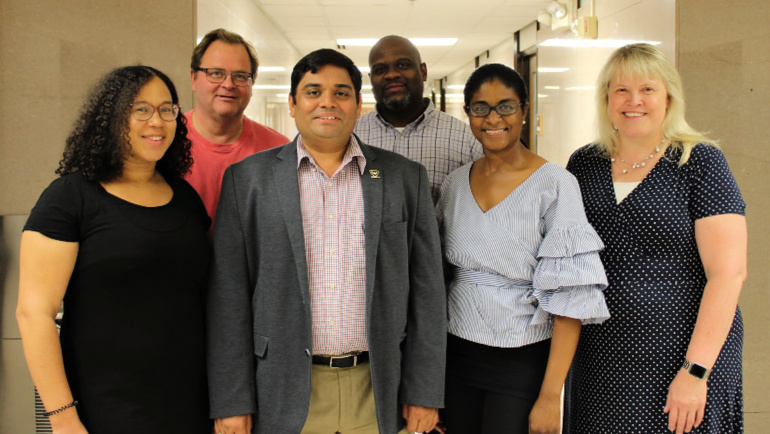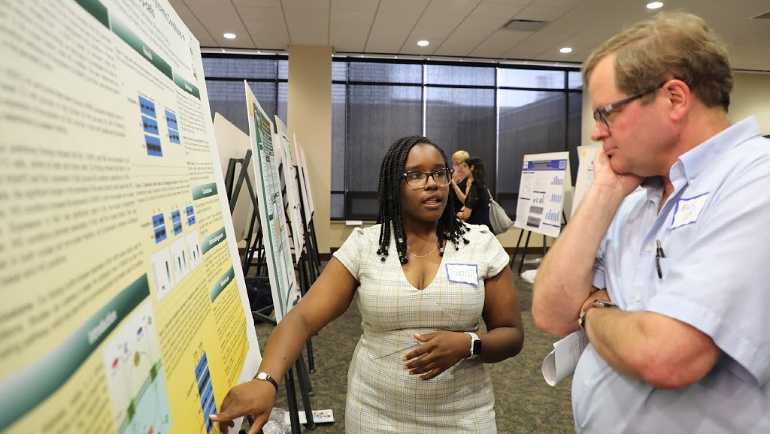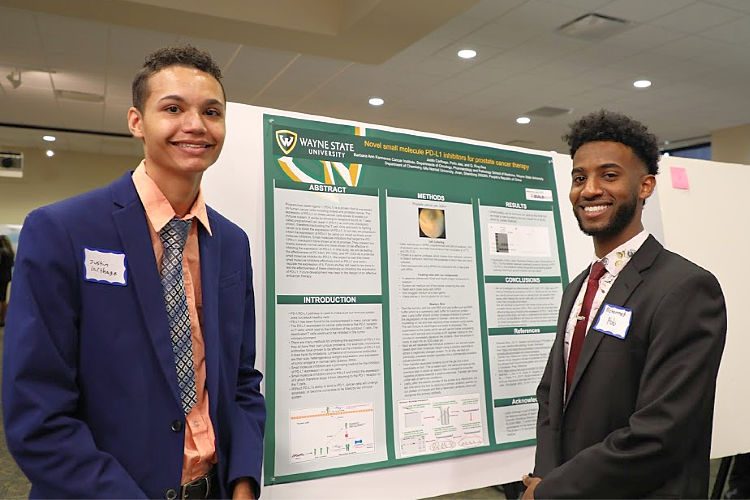
Wayne State University and University of Detroit Mercy’s ReBUILDetroit program recently received a renewal grant of more than $19 million over five years from the National Institutes of Health (NIH) to encourage undergraduate students from underrepresented or economically disadvantaged backgrounds to pursue careers in biomedical research.
The majority of the grant will provide student scholarships and stipends for students enrolled in the program. From freshman year on, ReBUILDetroit scholars experience the excitement of scientific discovery through direct participation in research, peer and faculty mentoring and cohort building activities. They also attend lectures and presentations by guest speakers and engage professional development while preparing for graduate school and career paths in exciting and in-demand biomedical disciplines.
“Buoyed by our initial successes, our goal is to continue enriching the college experience of our ReBUILDetroit Scholars, helping them graduate in STEM disciplines and stimulating their interest in biomedical research using multiple approaches,” said Ashok Kumar, an associate dean in the WSU Graduate School and co-PI on the grant. "We envisioned that by introducing these young people to biomedical career opportunities, we can ultimately increase the diversity of faculty members in STEM fields.
"Although we want to ensure that our future generations will thrive in a diverse academic environment, if we do not fill the pipeline at the undergraduate level, we cannot expect to recruit more diverse faculty.”

ReBUILDetroit is a partnership between WSU and UDM supported by an initial $21.2 million grant awarded in 2014. Henry Ford College will also play a role in this partnership by creating pathways from community college to four-year and graduate programs that prepare students for biomedical research careers.
Katherine Snyder, dean of Detroit Mercy’s College of Engineering & Science and co-PI of the grant, is thrilled with the renewal of this grant and looks forward to impacting a greater number of students who might consider biomedical fields of study.
“This renewal allows us to build upon the impactful interventions we implemented during the first round of funding and continue to implement institutional change to sustain this impact beyond grant funding,” she explained.
Students who enroll in this program receive a number of benefits, including:
- Tuition scholarships
- Paid, faculty-mentored research.
- Extensive mentoring by faculty and peers in and outside the classroom.
- Curriculum support and programming to prepare students for graduate studies.
- Networking opportunities with the scientific research community.
- Opportunities to present research at national conferences.

The first phase of the grant significantly impacted student retention rates.
“Some examples of my roles in this program are to work across institutions to design and implement professional development programming for faculty mentors, to introduce incoming scholars to university-level chemistry, and to teach them about responsible conduct in research as they begin their first research experiences,” said Tamara Hendrickson, associate professor of biochemistry and deputy director of ReBUILD’s Institutional Development Core. “It is so rewarding to watch these students succeed and develop into scientists.”
In addition, students participating in the program learned to identify themselves as members of the scientific research community due in large part to the interventions introduced by the program.
“Since I first see them when they begin our Summer Enrichment program just before they enter as freshman, I have really enjoyed watching how they mature into young scientists,” said Mark VanBerkum, professor of biological sciences and director of ReBUILD’s Research Enrichment Core and deputy director of the Student Trading Core. “On Poster Day each year they present their research. They look sharp and talk science, getting better each summer.”
To learn more about ReBUILDetroit, please visit rebuildetroit.org.
